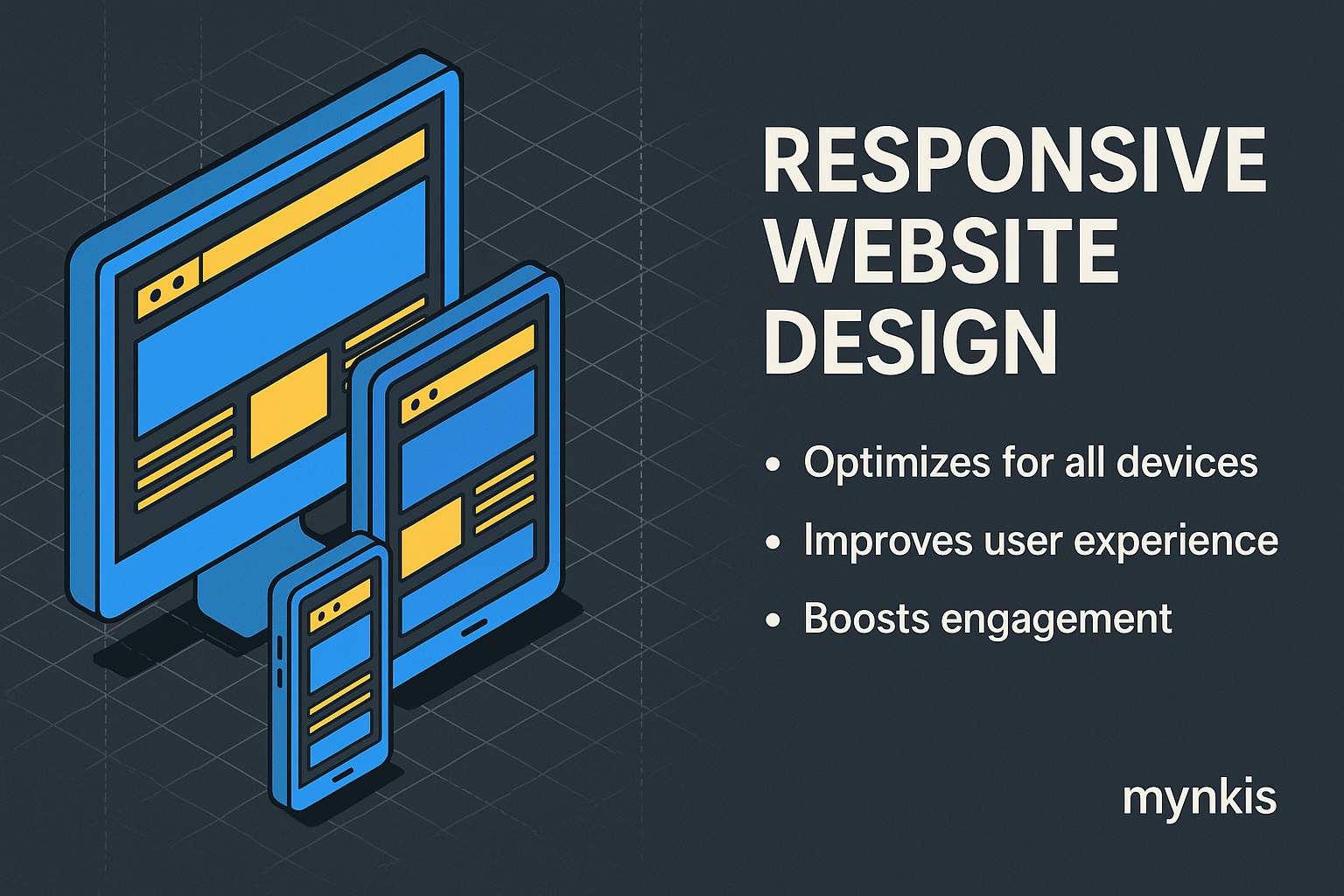Schedule a Demo
Responsive website design isn't just a trendy phrase thrown around in tech circles; it's a critical element that directly influences user experience, customer satisfaction, and ultimately, your business’s bottom line. In my work with various startups and established firms, I've seen firsthand how a responsive website can transform user engagement. It's like serving a gourmet meal at the right temperature, no matter where your guest is sitting.
Why does it matter? Because we live in a world where people use various devices to access the internet. From smartphones to tablets, and from desktops to smartwatches, your website must adapt seamlessly. A user who struggles with a clunky website on their phone is more likely to abandon ship, turning potential customers into lost opportunities.
At its core, responsive design means your website automatically adjusts to the screen size and resolution of the device it's being viewed on. This is not just about aesthetics; it's about functionality. The layout, images, and text should shift and rescale to provide an optimal viewing experience across all platforms.
Take, for example, a business that sells handmade crafts online. On a desktop, the product images and descriptions could be displayed in a multi-column layout. On a smartphone, those same elements would need to stack vertically for easy browsing. Without responsive design, users on mobile devices might only see a fraction of your page, missing out on key product details.
The goal of responsive design is to keep users engaged and satisfied, no matter how they're accessing your site. A positive user experience can mean the difference between a returning customer and a one-time visitor. When your site is easy to navigate, visually appealing, and quick to load, users are more likely to stay longer and interact more deeply with your content.
I once worked with a startup that completely revamped their non-responsive website. Before the change, their bounce rate was sky-high. People just weren’t staying on the page long enough to convert. Post-redesign, with a fully responsive site, their bounce rate dropped by nearly 40%, illustrating the significant impact of responsive design on user retention.
Beyond user experience, responsive design has tangible SEO benefits. Google's mobile-first indexing prioritizes the mobile version of websites in search rankings. This means if your site isn't optimized for mobile, you're putting yourself at a competitive disadvantage right out of the gate.
From my experience, implementing a responsive design often leads to a faster website load time, which is another key factor in SEO. Slow sites not only frustrate users but also get penalized by search engines. Google tends to favor websites that load quickly, boosting their rankings and driving more organic traffic.
Creating a responsive design also makes economic sense. Developing and maintaining a single site that adjusts to all devices is generally more cost-effective than managing multiple sites for different devices. For startups, especially, this can free up valuable resources to focus on scaling other aspects of the business.
One founder I advised shifted from multiple site versions to a single responsive site, and she was able to reallocate the saved budget toward enhancing their product development and marketing campaigns. This shift not only improved their user experience but also allowed them to invest more in growing their business.
For founders, scalability is key. As your business grows, your digital footprint must be able to evolve with it. A responsive website design enables you to iterate quickly, introduce new features, and expand your content without breaking the user experience across devices.
This is where I've seen custom software development play a crucial role. Building a bespoke solution for a responsive site ensures that as new technologies emerge or user behaviors shift, your website can be adapted to meet those changes seamlessly. This ongoing adaptability is vital for any business looking to thrive in the long term.
When thinking about future technologies like foldable screens or augmented reality interfaces, having a responsive design foundation means you're already better prepared. Your website can evolve to meet these new user experiences without needing a complete overhaul.
The significance of responsive website design cannot be overstated for any business aiming to retain users and grow their online presence. It’s an essential part of the modern tech infrastructure, enabling you to offer a consistent and engaging experience to your audience, no matter how they choose to interact with your brand.
So, as you develop or revamp your digital assets, keep user experience at the forefront. Embrace responsive design not just as a trend, but as a fundamental strategy that can significantly impact your business's success.
